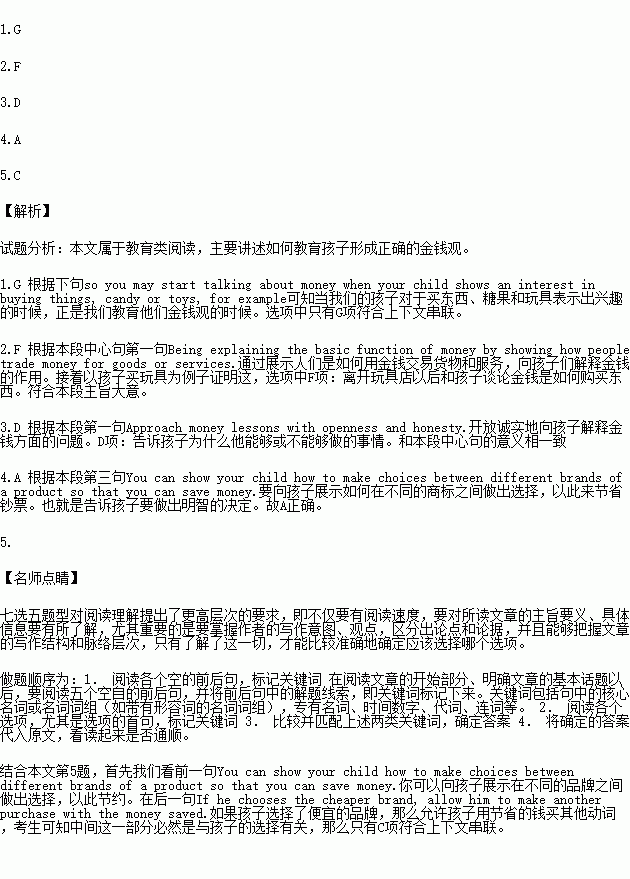题目内容
根据短文内容,从短文后面的选项中选出能填入空白处的最佳选项。其中有两项为多余项。
Money Matters
Parents should help their children understand money. 1.__ so you may start talking about money when your child shows an interest in buying things, candy or toys, for example.
1. The basic function of money
Being explaining the basic function of money by showing how people trade money for goods or services. It’s important to show your child how money is traded for the thing he wants to have. If he wants to have a toy, give him the money and let him hand the money to the cashier.___ 2. when your child grows a bit older and understands the basic function of money, you can start explaining more complex ways of using money.
2. Money lessons
Approach money lessons with openness and honesty. 3. If you must say no to a child’s request to spend money, explain,” You have enough toy trucks for now.” Or, if the request is for many different things, say. “You have to make a choice between this toy and that toy.”
3. 4.
Begin at the grocery store. Pick out similar brands of a product—a name brand butter and a generic(无商标产品),for example. You can show your child how to make choices between different brands of a product so that you can save money. _5. If he chooses the cheaper brand, allow him to make another purchase with the money saved. Later, you may explain how the more expensive choice leaves less money for other purchases.
A. Wise decision.
B. The value of money.
C. Permit the child to choose between them.
D. Tell your child why he can or cannot have certain things
E. Ask yourself what things that cost money are most important to you.
F. Talk about how the money bought the thing after you leave the toy store.
G. The best time to teach a child anything about money is when he shows an interest.

